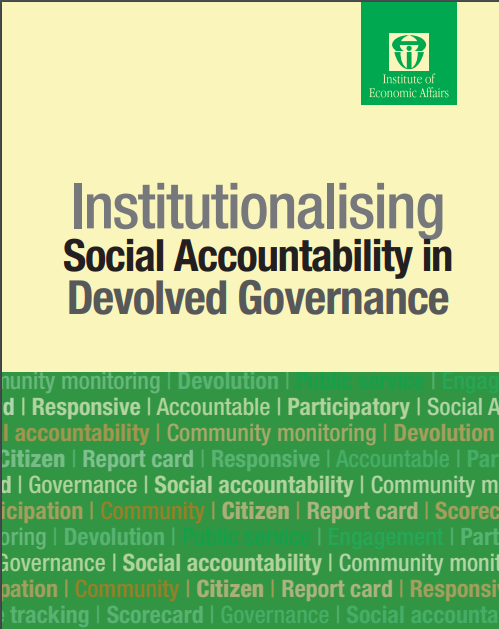Resource information
This handbook provides reference material for stakeholders in devolved governance, including policy makers at the county level and citizens, on social accountability and its relevance in devolved governance and the attainment of the objects of Kenya’s devolution as highlighted in Article 174 of the Constitution of Kenya 2010. The involvement of citizens and civil society in exacting accountability from public officers can contribute to, among others, enhanced transparency, reduced corruption, citizen empowerment, improved governance, and increased development effectiveness through enhanced public service delivery. Critical to the success of social accountability initiatives at the county level, however, is the capacity of civil society and that of county governments, and the synergy between the two. The effectiveness and sustainability of social accountability mechanisms is enhanced when they are institutionalized. This will, however, require the willingness by county governments to render their internal mechanisms in a way that opens them to public scrutiny. County governments also need to facilitate and strengthen public engagement and citizen voice in governance as envisaged by the constitution and the legislative framework on devolution.

